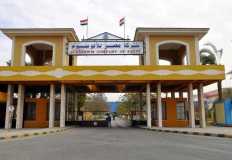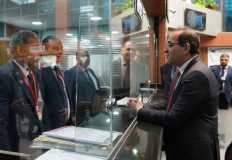
President Abdel Fattah El-Sisi met on Wednesday with Prime Minister Dr. Moustafa Madbouly, Minister of Communications and Information Technology Dr. Amr Talaat, and Director of the Egyptian Military Academy Lieutenant General Ashraf Zaher.
The presidential spokesperson announced that the meeting focused on the government's 'Digital Pioneers' (Digilians) initiative, designed to equip young people with skills in communications, IT, and software. This initiative aims to be a cornerstone of digital transformation and boost digital exports, key components of national economic development.
Ambassador Mohamed El-Shenawy, the official spokesperson,
stated that the Minister of Communications detailed the initiative, emphasizing
its goal to provide training for employment and generate job opportunities in
high-demand IT fields, particularly AI, programming, cybersecurity, design, and
digital arts. The initiative will be open to all age groups, academic and
professional backgrounds, and from all Egyptian governorates, broadening its
reach.
He further noted that applications will be submitted
digitally, with the portal launching post-Eid al-Fitr, as announced by the
Ministry of Communications. This aims to prepare a large number of youth for
the most sought-after roles in the IT sector.
The Minister of Communications and Information Technology Dr.
Amr Talaat explained that the initiative features full residency at equipped
facilities, utilizing the former Military College in Heliopolis after its move
to the New Administrative Capital. Comprehensive training will cover technical
skills, personal development, and English proficiency, alongside practical
experience with leading global and local companies. The program also offers
pathways to master's degrees from top international universities, with four
training tracks spanning four months to two years. The target is to admit 5,000
students annually, with an estimated 3 billion Egyptian pounds for facilities
and 1 billion pounds annually for training.
President Sisi stressed the importance of rigorous, transparent, and impartial selection procedures to build public trust in the initiative, which will ultimately prepare participants for in-demand jobs.





